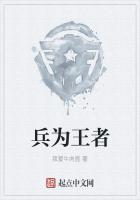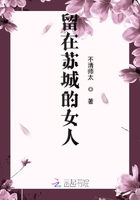Philip had led always the solitary life of an only child, and his loneliness at the vicarage was no greater than it had been when his mother lived. He made friends with Mary Ann. She was a chubby little person of thirty-five, the daughter of a fisherman, and had come to the vicarage at eighteen; it was her first place and she had no intention of leaving it; but she held a possible marriage as a rod over the timid heads of her master and mistress. Her father and mother lived in a little house off Harbour Street, and she went to see them on her evenings out. Her stories of the sea touched Philip's imagination, and the narrow alleys round the harbour grew rich with the romance which his young fancy lent them. One evening he asked whether he might go home with her; but his aunt was afraid that he might catch something, and his uncle said that evil communications corrupted good manners. He disliked the fisher folk, who were rough, uncouth, and went to chapel. But Philip was more comfortable in the kitchen than in the dining-room, and, whenever he could, he took his toys and played there. His aunt was not sorry. She did not like disorder, and though she recognised that boys must be expected to be untidy she preferred that he should make a mess in the kitchen. If he fidgeted his uncle was apt to grow restless and say it was high time he went to school. Mrs. Carey thought Philip very young for this, and her heart went out to the motherless child; but her attempts to gain his affection were awkward, and the boy, feeling shy, received her demonstrations with so much sullenness that she was mortified. Sometimes she heard his shrill voice raised in laughter in the kitchen, but when she went in, he grew suddenly silent, and he flushed darkly when Mary Ann explained the joke. Mrs. Carey could not see anything amusing in what she heard, and she smiled with constraint.
“He seems happier with Mary Ann than with us, William,” she said, when she returned to her sewing.
“One can see he's been very badly brought up. He wants licking into shape.”
On the second Sunday after Philip arrived an unlucky incident occurred. Mr. Carey had retired as usual after dinner for a little snooze in the drawing-room, but he was in an irritable mood and could not sleep. Josiah Graves that morning had objected strongly to some candlesticks with which the Vicar had adorned the altar. He had bought them second-hand in Tercanbury, and he thought they looked very well. But Josiah Graves said they were popish. This was a taunt that always aroused the Vicar. He had been at Oxford during the movement which ended in the secession from the Established Church of Edward Manning, and he felt a certain sympathy for the Church of Rome. He would willingly have made the service more ornate than had been usual in the low-church parish of Blackstable, and in his secret soul he yearned for processions and lighted candles. He drew the line at incense. He hated the word protestant. He called himself a Catholic. He was accustomed to say that Papists required an epithet, they were Roman Catholic; but the Church of England was Catholic in the best, the fullest, and the noblest sense of the term. He was pleased to think that his shaven face gave him the look of a priest, and in his youth he had possessed an ascetic air which added to the impression. He often related that on one of his holidays in Boulogne, one of those holidays upon which his wife for economy's sake did not accompany him, when he was sitting in a church, the cure had come up to him and invited him to preach a sermon. He dismissed his curates when they married, having decided views on the celibacy of the unbeneficed clergy. But when at an election the Liberals had written on his garden fence in large blue letters: This way to Rome, he had been very angry, and threatened to prosecute the leaders of the Liberal party in Blackstable. He made up his mind now that nothing Josiah Graves said would induce him to remove the candlesticks from the altar, and he muttered Bismarck to himself once or twice irritably.
Suddenly he heard an unexpected noise. He pulled the handkerchief off his face, got up from the sofa on which he was lying, and went into the dining-room. Philip was seated on the table with all his bricks around him. He had built a monstrous castle, and some defect in the foundation had just brought the structure down in noisy ruin.
“What are you doing with those bricks, Philip? You know you're not allowed to play games on Sunday.”
Philip stared at him for a moment with frightened eyes, and, as his habit was, flushed deeply.
“I always used to play at home,” he answered.
“I'm sure your dear mamma never allowed you to do such a wicked thing as that.”
Philip did not know it was wicked; but if it was, he did not wish it to be supposed that his mother had consented to it. He hung his head and did not answer.
“Don't you know it's very, very wicked to play on Sunday? What d'you suppose it's called the day of rest for? You're going to church tonight, and how can you face your Maker when you've been breaking one of His laws in the afternoon?”
Mr. Carey told him to put the bricks away at once, and stood over him while Philip did so.
“You're a very naughty boy,” he repeated. “Think of the grief you're causing your poor mother in heaven.”
Philip felt inclined to cry, but he had an instinctive disinclination to letting other people see his tears, and he clenched his teeth to prevent the sobs from escaping. Mr. Carey sat down in his arm-chair and began to turn over the pages of a book. Philip stood at the window. The vicarage was set back from the highroad to Tercanbury, and from the dining-room one saw a semicircular strip of lawn and then as far as the horizon green fields. Sheep were grazing in them. The sky was forlorn and gray. Philip felt infinitely unhappy.
Presently Mary Ann came in to lay the tea, and Aunt Louisa descended the stairs.
“Have you had a nice little nap, William?” she asked.
“No,” he answered. “Philip made so much noise that I couldn't sleep a wink.”
This was not quite accurate, for he had been kept awake by his own thoughts; and Philip, listening sullenly, reflected that he had only made a noise once, and there was no reason why his uncle should not have slept before or after. When Mrs. Carey asked for an explanation the Vicar narrated the facts.
“He hasn't even said he was sorry,” he finished.
“Oh, Philip, I'm sure you're sorry,” said Mrs. Carey, anxious that the child should not seem wickeder to his uncle than need be.
Philip did not reply. He went on munching his bread and butter. He did not know what power it was in him that prevented him from making any expression of regret. He felt his ears tingling, he was a little inclined to cry, but no word would issue from his lips.
“You needn't make it worse by sulking,” said Mr. Carey.
Tea was finished in silence. Mrs. Carey looked at Philip surreptitiously now and then, but the Vicar elaborately ignored him. When Philip saw his uncle go upstairs to get ready for church he went into the hall and got his hat and coat, but when the Vicar came downstairs and saw him, he said:
“I don't wish you to go to church tonight, Philip. I don't think you're in a proper frame of mind to enter the House of God.”
Philip did not say a word. He felt it was a deep humiliation that was placed upon him, and his cheeks reddened. He stood silently watching his uncle put on his broad hat and his voluminous cloak. Mrs. Carey as usual went to the door to see him off. Then she turned to Philip.
“Never mind, Philip, you won't be a naughty boy next Sunday, will you, and then your uncle will take you to church with him in the evening.”
She took off his hat and coat, and led him into the dining-room.
“Shall you and I read the service together, Philip, and we'll sing the hymns at the harmonium. Would you like that?”
Philip shook his head decidedly. Mrs. Carey was taken aback. If he would not read the evening service with her she did not know what to do with him.
“Then what would you like to do until your uncle comes back?” she asked helplessly.
Philip broke his silence at last.
“I want to be left alone,” he said.
“Philip, how can you say anything so unkind? Don't you know that your uncle and I only want your good? Don't you love me at all?”
“I hate you. I wish you was dead.”
Mrs. Carey gasped. He said the words so savagely that it gave her quite a start. She had nothing to say. She sat down in her husband's chair; and as she thought of her desire to love the friendless, crippled boy and her eager wish that he should love her — she was a barren woman and, even though it was clearly God's will that she should be childless, she could scarcely bear to look at little children sometimes, her heart ached so — the tears rose to her eyes and one by one, slowly, rolled down her cheeks. Philip watched her in amazement. She took out her handkerchief, and now she cried without restraint. Suddenly Philip realised that she was crying because of what he had said, and he was sorry. He went up to her silently and kissed her. It was the first kiss he had ever given her without being asked. And the poor lady, so small in her black satin, shrivelled up and sallow, with her funny corkscrew curls, took the little boy on her lap and put her arms around him and wept as though her heart would break. But her tears were partly tears of happiness, for she felt that the strangeness between them was gone. She loved him now with a new love because he had made her suffer.















